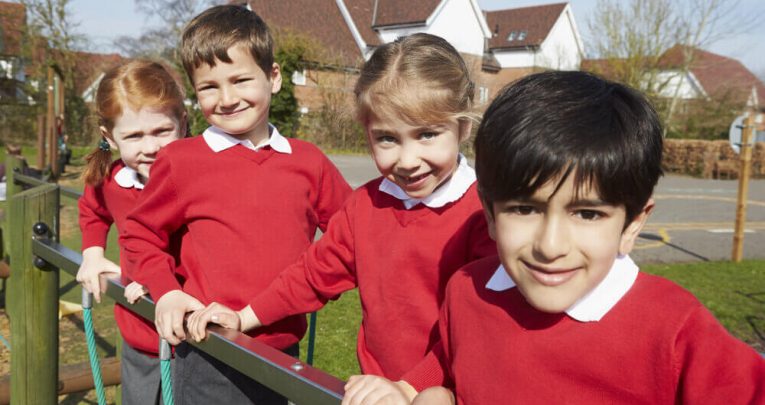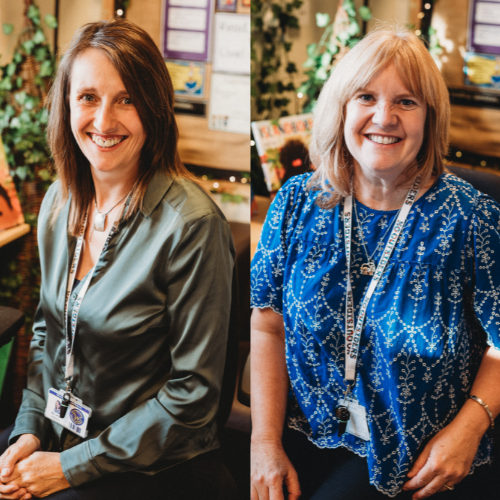Inclusion in primary schools – How extended breaktimes have improved behaviour and wellbeing

Jill Wright and Marie Beale explain how extended playtime has helped improve inclusion and behaviour at their school…

What does inclusion look like at Whitefield Primary? For us, the most important thing is that it underpins our culture.
One of our children told a visitor this week: “We don’t talk about the Whitefield team, if you come here, you are part of the Whitefield family. Everyone belongs.”
Don’t get us wrong, we are far from perfect, but we’re proud that staff strive to include all our children by giving each individual what they need in order for them to achieve.
As part of this drive, we follow a No Outsiders curriculum and explicitly teach our children that everyone has a place to belong in our school community. To us, creating and building relationships is key; it’s central to the way Whitefield works to be inclusive.
Learning through play
The children’s journey starts in Early Years where we follow a play-based approach to learning. We have seen many benefits of this, particularly in supporting children to learn how to share, self-regulate and resolve conflict, and develop relationships with peers and staff.
We noticed that the children joining us later in school struggled more with those areas, and did not always have the same emotional foundation as pupils that have been with us from the beginning of their school life.
So, we planned to reconsider our lunchtime experience for the whole school, based on what we’ve learned with our Early Years cohorts… then lockdown hit.
As we returned from the first Covid-19 lockdown and considered how to rebuild, we quickly identified that there was also now a need to reconnect and rebuild our relationships with the children, and help them to remake friendships with their peers.
Building on this, we decided to implement open-ended, loose parts play – usually reserved for Early Years – in our whole-school break for half an hour each day and over lunchtimes.
We visited the Leeds ScrapShed and collected an eclectic mix of crates, pipes, pots, pans, wheels, cable reels, dressing up and other flexible items to create excitement and engagement.
We used training times to work with our staff to see play as an opportunity for children to develop and learn.
Initially, we were supported by our expert Early Years team in modelling and understanding play opportunities. We made sure we could resource the play and briefed the children on the importance of play and how to be together.
Staff worked with children to develop ideas about how they could use the resources and taught pupils how to care for them, as they were initially destructive.
Whole-school play
Now all our class-based staff join in the extended morning play time. This is no longer ‘playground duty’ – our challenge is to help the children to have a rich imaginative varied experience.
At first, the need for Covid zones helped with this, and we decided to maintain play zones with different resources this academic year to make sure the play stays fresh and exciting.
We are fortunate to have large outdoor space and have, over time, invested to develop it. We now have an urban forest, two large sandpits and lots of green, calm spaces.
These are rich environments, but loose parts play works just as well on our normal playground – having open-ended resources and skilled facilitating adults was the most important aspect.
Initially, staff were hesitant about the pressure on the timetable and loss of breaks, but in time recognised that the benefits of a much more positive experience meant that children were able to learn more easily and less learning time was lost sorting out disputes after lunch.
They also found their adult-child relationships were much stronger through the shared experience of playing and creating together, and loved seeing children full of joy.
Behaviour management
This is not to say we never have a disagreement on the playground anymore; however our behaviour logs show they have dramatically reduced, particularly among our neurodiverse children.
When incidents do happen, it is rare that senior leaders need to get involved, and those incidents are lower level.
We underpin everything we do at school by using ‘zones of regulation’ as the basis of our behaviour policy, so that children are taught emotional literacy and can build a toolkit of strategies to help them first co-regulate, then self-regulate their emotions, and therefore their reactions.
This is key for many of our learners who need additional support. During playtimes this means that our staff and children have a shared language to discuss any conflict or heightened emotion, and children develop their own toolkit to manage themselves, or communicate when they need help.
This includes making clear links with the physical impact of emotions, and on how to recognise and avoid triggers. We use the Take Ten app which visualises heart rate and helps children to recognise and change what is happening to them.
Our next steps will be to teach parents more about regulation and play so we can work more seamlessly together. We are thrilled to have been given a grant from SHINE UK to trial this work in Early Years, with a view to rolling it out to other schools in future.
Valuing each child
We’re also on a journey to become an Attachment and Trauma Sensitive Gold School.
All members of staff are trained to be Adverse Childhood Experiences (ACES) aware, and we have tried to build a culture where all staff recognise that they may be the one that a child chooses as their ‘special person’.
Playtimes give children the chance to develop these relationships and feel safe and secure.
For a neurodiverse child, play also fulfils their need for sensory breaks and gives space to spin, run, jump and be absorbed in their own interests, with an adult alongside to facilitate social relationships and help manage emotions. The play project was central to our journey to ADHD-friendly school status.
Finally, of course, we recognise play is just one part of the inclusion jigsaw. At Whitefield we have tried to maximise the impact of inclusion by really focusing on core high-quality inclusive teaching in classes, with the aim of integrating all children as much as possible; for example, using visual timetables with the same symbols in every class and in assemblies; a clear, ordered learning environment which is consistent class-to-class for neurodiverse learners; and the creation of sensory corridors and spaces.
Our Growth Curriculum also includes social thinking and understanding of diversity in terms of SEND as well as other aspects.
Our school motto is not an empty set of words but one which we live by every day: ‘We value each child for who they are and prepare them for who they can be’.
Jill Wright and Marie Beale are headteacher and deputy headteacher, respectively, at Whitefield Primary School, which won the 2021 nasen Award for Primary Provision. Find out more at nasen.org.uk/awards.












